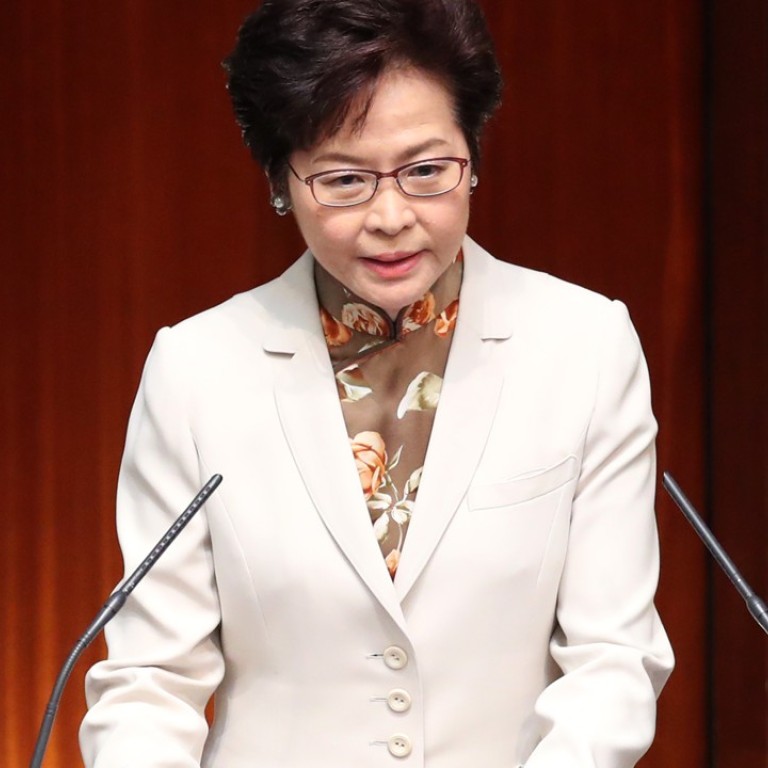
Letters to the Editor, January 23, 2018
Lam’s appeal to young falls on deaf ears
Press reports following the policy address last year, indicated that a lot of young people were lukewarm about the chief executive’s call for them to join “various government boards and committees”.
It appears that many youngsters are showing little interest in politics. Their main concerns are with themselves rather than society.
They are reluctant to join any of these boards because they do not trust the government thanks to the track record of previous administrations.
Carrie Lam Cheng Yuet-ngor has done a far better job than her predecessor Leung Chun-ying, when it comes to trying to listen to teenagers, but this is still not enough.
She and her government will have to do a lot more to win the trust of young people and be credible in their eyes.
The latest efforts of the government to engage young people appear to be superficial and it continues to ignore their views.
Instead of just blaming young adults for appearing to be so non-committal, officials should really try and ask themselves why so many of them do not want to be involved in politics in Hong Kong.
Marco Chan Hei-yin, Lohas Park
Milk tea still an important part of city’s culture
Milk tea is a symbol of our culture and like our city it has gone through many changes. You used to just see it in traditional Hong Kong cafes and street food stalls, but now you can get in fast food chains like McDonald’s and in eateries around the world, so it is a part of our culinary tradition that we should be proud of.
It remains a popular drink with citizens from different generations, especially as the milk used is sweeter and creamier than ordinary milk.
For many of us it is part of our memories of growing up. Some parents do not consider it to be a healthy drink for their children, but I do hope it will survive and like other parts of our culture will be promoted globally.
Sally Wong Ka-yee, Kwai Tsing
Road pricing scheme can cut air pollution
Electronic road pricing (ERP) has proved to be successful at reducing traffic congestion in a number of countries, including Singapore and Japan.
It is particularly effective in downtown areas where traffic is very heavy during weekdays. I think it could help to ease congestion in areas of Hong Kong, especially at tolls where drivers have to stop and physically pay fees, for example, the Cross-Harbour Tunnel.
With ERP, only cars with certain registration numbers would be allowed to go through designated tolls. This would encourage drivers who are not eligible to take their cars on certain days to seek alternative, more eco-friendly arrangements, for example, joining a car pool or using public transport.
There is clearly a need to reduce congestion as this can lead to lower levels of roadside air pollution and help to clean up the environment. Therefore, I think the adoption of ERP is a no-brainer in Hong Kong.
Victoria Lai Yi-ching, Tsing Lung Tau
Take simple precautions to protect cash
What matters is to take simple precautions, such as not boarding with too much cash. People can always change money when they arrive at their destination. Shop around and find a bank or money changer offering the best rate.
And of course, people need to take care of their personal belongings at all times, including when they are on a flight. Passengers have to stop assuming that everything is fine, because they have now boarded a plane.
Emily Wong, Kwai Chung
Stress remains real problem in local schools
I agree with critics of our education system that it is resulting in a lot of pupils feeling high levels of stress.
They are facing this stress for various reasons including having too many tests and too much homework. And I am not just talking about senior secondary forms. Even children in Primary One are under far too much pressure.
Often when they have finished all their homework assignments, there is no time left for relaxation and they have to go straight to bed. Parents need to ensure their children get enough rest and schools should lower workloads.
Kelly Wong, Po Lam

